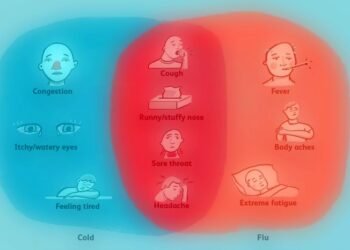To compare the nutritional profiles of moongphali (peanuts), badam (almonds), kaju (cashews), pista (pistachios), and kishmish (raisins), I’ll provide a detailed breakdown based on their approximate nutritional content per 100 grams. These values are general estimates and can vary slightly depending on the specific variety, processing (e.g., raw, roasted, salted), and source. I’ll focus on key nutrients like calories, protein, fats, carbohydrates, fiber, vitamins, and minerals, and highlight their health benefits.
Note: The terms provided (moofli, baa daam, kaaju, pista, kishmish) are interpreted as moongphali (peanuts), badam (almonds), kaju (cashews), pista (pistachios), and kishmish (raisins) based on common usage in Indian contexts. All data refers to raw, unsalted forms unless specified, as processing can alter nutritional profiles (e.g., roasting may reduce moisture, and salting adds sodium).
Table of Contents
ToggleNutritional Profile Comparison (per 100g, approximate values)
| Nutrient | Moongphali (Peanuts) | Badam (Almonds) | Kaju (Cashews) | Pista (Pistachios) | Kishmish (Raisins) |
|---|---|---|---|---|---|
| Calories (kcal) | 567 | 579 | 553 | 562 | 299 |
| Protein (g) | 25.8 | 21.2 | 18.2 | 20.2 | 3.3 |
| Total Fat (g) | 49.2 | 49.9 | 43.8 | 45.3 | 0.5 |
| Saturated Fat (g) | 6.8 | 3.8 | 7.8 | 5.9 | 0.1 |
| Monounsaturated Fat (g) | 24.4 | 31.6 | 23.8 | 23.3 | 0.1 |
| Polyunsaturated Fat (g) | 15.6 | 12.3 | 7.8 | 14.4 | 0.1 |
| Carbohydrates (g) | 16.1 | 21.6 | 30.2 | 27.2 | 79.2 |
| Sugars (g) | 4.7 | 4.4 | 5.9 | 7.7 | 47.0 |
| Fiber (g) | 8.5 | 12.5 | 3.3 | 10.6 | 3.3 |
| Calcium (mg) | 92 | 269 | 37 | 105 | 45 |
| Iron (mg) | 4.6 | 3.7 | 6.7 | 3.9 | 1.3 |
| Magnesium (mg) | 168 | 270 | 292 | 121 | 32 |
| Potassium (mg) | 705 | 733 | 660 | 1025 | 749 |
| Vitamin E (mg) | 8.3 | 25.6 | 0.9 | 2.9 | 0.1 |
| Vitamin B6 (mg) | 0.3 | 0.1 | 0.4 | 1.7 | 0.2 |
| Antioxidants | Resveratrol, phytosterols | Vitamin E, polyphenols | Copper, phytosterols | Lutein, zeaxanthin | Polyphenols, boron |
Detailed Comparison and Analysis
- Calories:
- Peanuts, Almonds, Cashews, Pistachios: These nuts are calorie-dense (553–579 kcal/100g) due to their high fat content, making them energy-rich snacks suitable for active individuals or those needing calorie boosts.
- Raisins: Lower in calories (299 kcal/100g) due to minimal fat and high carbohydrate content, ideal for quick energy but less calorie-dense than nuts.
- Protein:
- Peanuts: Highest protein content (25.8g), excellent for muscle repair and growth, especially for vegetarians.
- Almonds and Pistachios: Comparable protein (21.2g and 20.2g), good for satiety and muscle health.
- Cashews: Slightly lower (18.2g) but still a solid protein source.
- Raisins: Low protein (3.3g), not a significant source for muscle-building needs.
- Fats:
- Peanuts, Almonds, Cashews, Pistachios: High in healthy fats (43.8–49.9g), primarily monounsaturated and polyunsaturated fats, which support heart health by reducing LDL cholesterol. Almonds have the highest monounsaturated fat (31.6g), similar to olive oil’s heart-healthy profile.
- Raisins: Nearly fat-free (0.5g), making them a low-fat option but less beneficial for heart-healthy fat intake.
- Carbohydrates and Sugars:
- Raisins: High in carbs (79.2g) and natural sugars (47g), providing quick energy, ideal for athletes or pre-workout snacks. However, their high sugar content requires moderation to avoid blood sugar spikes.
- Cashews and Pistachios: Moderate carbs (30.2g and 27.2g), with lower sugars (5.9g and 7.7g), suitable for balanced energy release.
- Almonds and Peanuts: Lower carbs (21.6g and 16.1g), making them better for low-carb diets.
- Fiber:
- Almonds: Highest fiber (12.5g), excellent for digestion and satiety, potentially aiding weight management.
- Pistachios: Also high (10.6g), supporting gut health and fullness.
- Peanuts: Good fiber (8.5g), aiding digestion.
- Cashews and Raisins: Lower fiber (3.3g each), less effective for digestive health or satiety.
- Micronutrients:
- Calcium: Almonds lead (269mg), supporting bone health, especially for postmenopausal women. Pistachios (105mg) and peanuts (92mg) contribute moderately, while cashews (37mg) and raisins (45mg) offer less.
- Iron: Cashews provide the most (6.7mg), followed by peanuts (4.6mg) and pistachios (3.9mg), aiding red blood cell production and preventing anemia. Raisins (1.3mg) are a modest source.
- Magnesium: Cashews (292mg) and almonds (270mg) are top sources, supporting muscle function and energy metabolism. Pistachios (121mg) and peanuts (168mg) are good, while raisins (32mg) lag.
- Potassium: Pistachios (1025mg) and raisins (749mg) excel, aiding blood pressure regulation and muscle function.
- Vitamin E: Almonds are exceptionally high (25.6mg), acting as a potent antioxidant for skin and heart health. Peanuts (8.3mg) and pistachios (2.9mg) contribute, while cashews (0.9mg) and raisins (0.1mg) are low.
- Vitamin B6: Pistachios stand out (1.7mg), supporting brain health and metabolism. Cashews (0.4mg) and peanuts (0.3mg) contribute modestly.
- Antioxidants:
- Almonds: Rich in vitamin E and polyphenols, protecting against oxidative stress.
- Pistachios: Contain lutein and zeaxanthin, beneficial for eye health.
- Peanuts: Resveratrol and phytosterols, linked to heart health and anti-inflammatory effects.
- Cashews: Copper and phytosterols, supporting immune and heart health.
- Raisins: Polyphenols and boron, aiding antioxidant defense and bone health.
Health Benefits and Considerations
- Moongphali (Peanuts): High protein and healthy fats make them a cost-effective, nutrient-dense snack. They support heart health and muscle repair but are common allergens, so caution is needed for those with peanut allergies.
- Badam (Almonds): Excellent for heart health (high monounsaturated fats, vitamin E), bone health (calcium, magnesium), and digestion (fiber). Ideal for weight management due to satiety.
- Kaju (Cashews): Support brain health (magnesium, iron) and provide a creamy texture for culinary uses. Lower fiber makes them less filling than almonds or pistachios.
- Pista (Pistachios): Great for eye health (lutein, zeaxanthin), heart health (potassium, healthy fats), and metabolism (vitamin B6). Their moderate calorie and high fiber content make them a good choice for weight-conscious diets.
- Kishmish (Raisins): Provide quick energy due to high natural sugars, ideal for athletes or endurance activities. They’re rich in antioxidants and potassium but low in protein and fat, and their high sugar content requires moderation to avoid weight gain or blood sugar spikes.
Practical Recommendations
- For Energy and Endurance: Raisins are the best choice for quick energy due to high carbs and sugars, ideal for athletes or pre-workout snacks.
- For Heart Health: Almonds, peanuts, and pistachios are top choices due to their high monounsaturated fats and vitamin E.
- For Bone Health: Almonds (high calcium, magnesium) and raisins (boron, calcium) support strong bones, especially for older adults.
- For Weight Management: Almonds and pistachios, with high fiber and moderate calories, promote satiety and portion control.
- For Muscle Building: Peanuts and almonds offer the highest protein content, ideal for muscle repair.
- Culinary Uses: Raisins add sweetness to desserts, salads, or savory dishes like biryani. Cashews are versatile for creamy sauces or snacks. Almonds and pistachios work well in baking or as crunchy toppings.
Notes and Limitations
- Portion Control: Nuts are calorie-dense, so a typical serving (25–30g) is recommended to avoid excess calorie intake. Raisins, due to high sugar, should also be consumed in moderation (e.g., 1–2 tbsp).
- Processing Impact: Roasted or salted nuts may have added oils or sodium, increasing calorie and sodium content. Raw or lightly roasted is healthiest.
- Allergies: Peanuts and tree nuts (almonds, cashews, pistachios) are common allergens. Always check for allergies.
- Data Variability: Nutritional values can vary based on variety, region, or processing. For precise needs, consult a nutritionist or check product labels.









